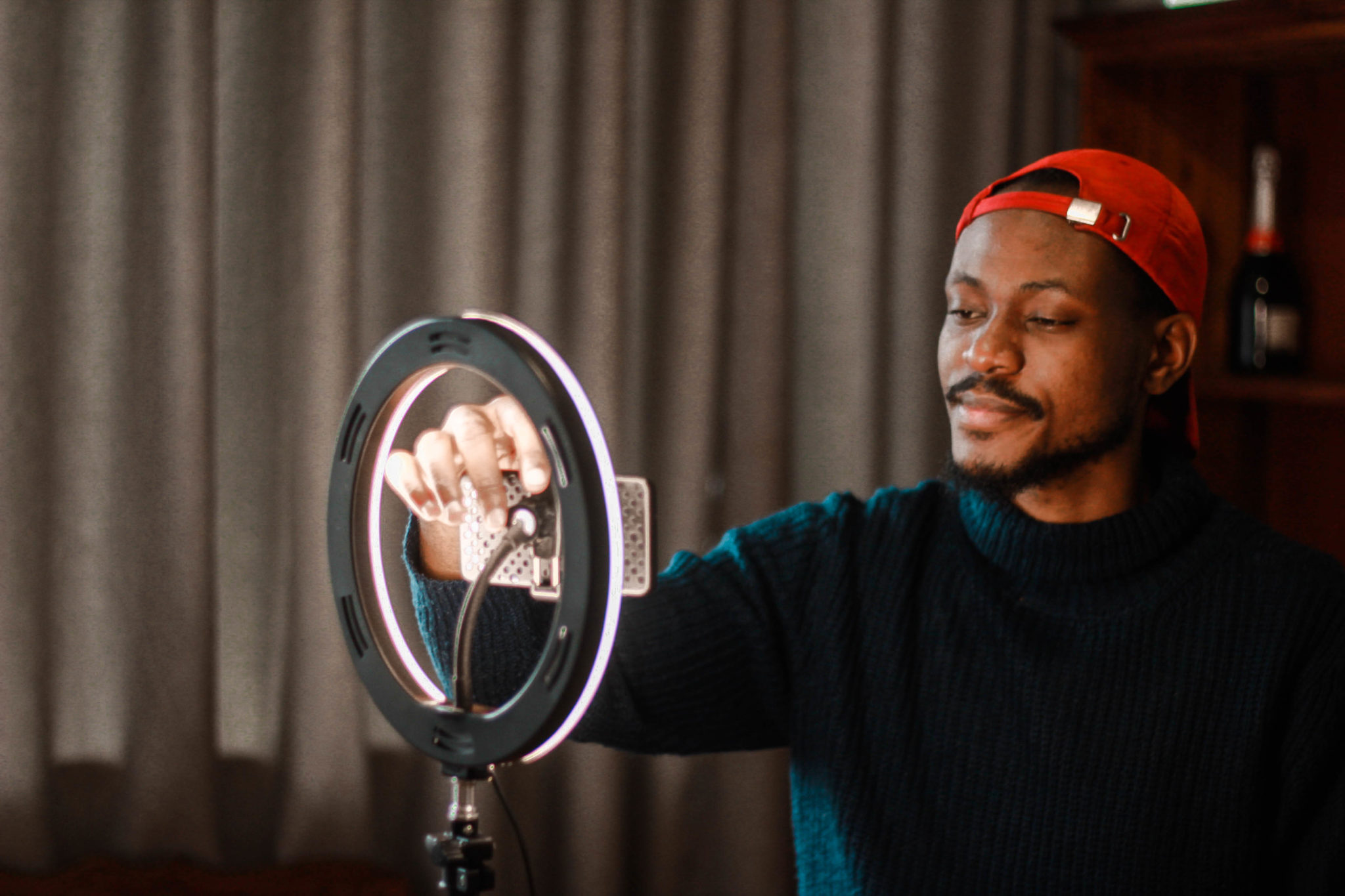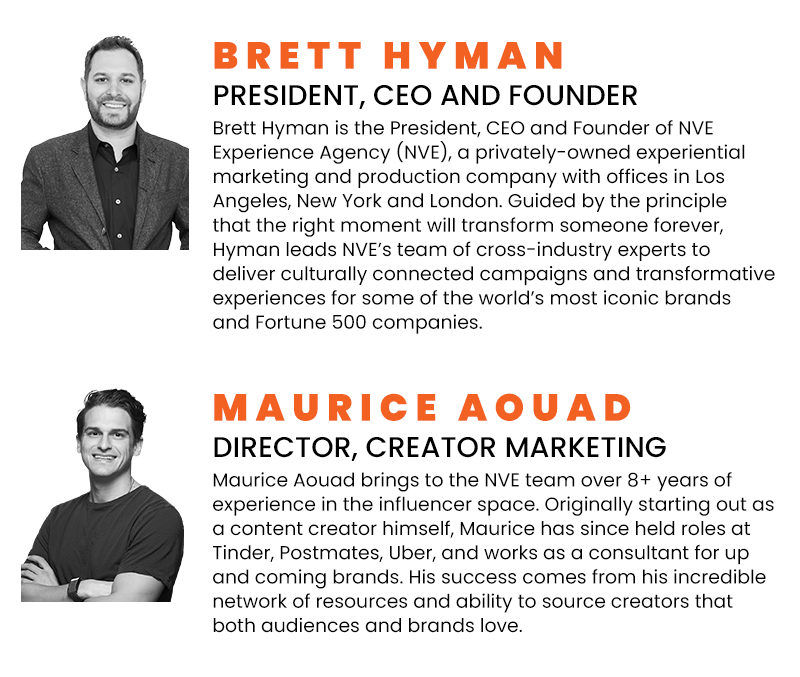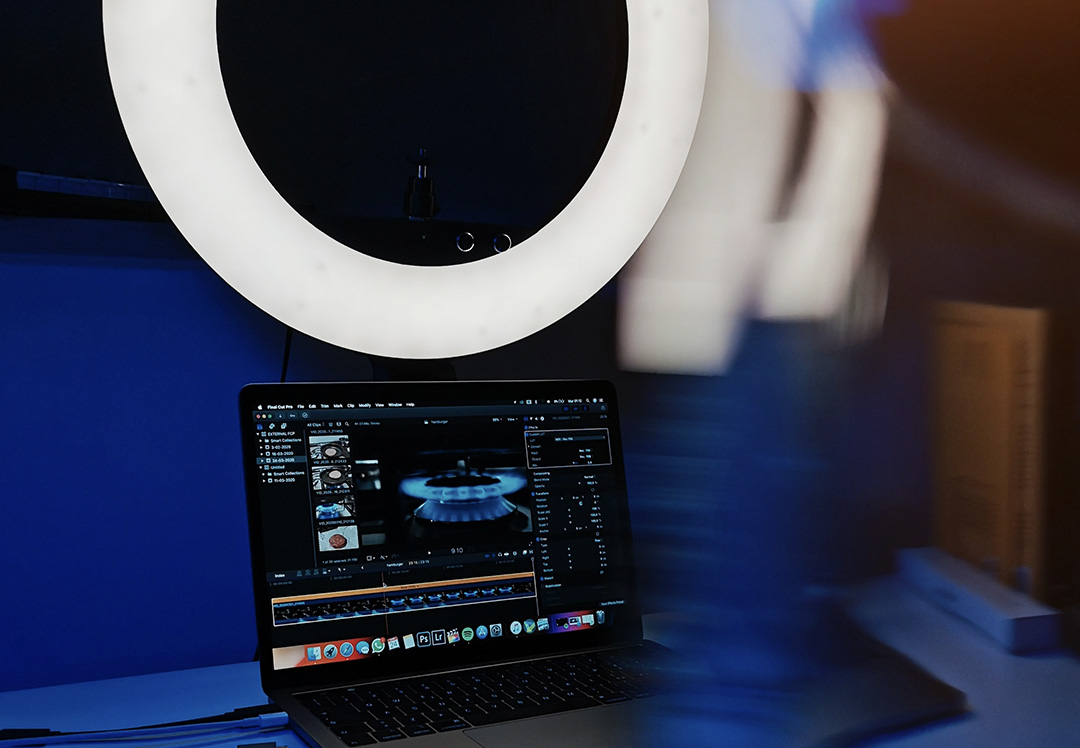From Influencers To Creators: How Influencer Marketing Has Evolved
- February 16, 2022

From a mere $1.7 billion in 2016 to an estimated $13.8 billion in 2021, the influencer marketing industry has enjoyed exponential growth in recent years. It goes without saying, though, that its success didn’t occur overnight. Nearly two decades have passed since the emergence of the modern digital influencer and things have — quite literally — not been the same since.
From a change in terminology to the transformation of content and campaigns, here’s how influencer marketing has evolved.
One of the most obvious signs of change has to be the transition from the use of “influencers” to “creators.” It’s been seen in the naming of brand initiatives like Pinterest Creators Festival or Instagram for Creators, all of which have hinted at the evolution of influencer marketing into something more inclusive. While it may seem like semantics, this small change has huge implications.
Maurice Aouad, Director of Creator Marketing at NVE Experience Agency:
When influencers first surfaced, it was very one-dimensional. It was typically the people who had a pre-existing platform, whether it was on Pinterest or some sort of blog, and attracted a millennial audience. From mommy bloggers to influencers within the food and exercise space, those were the people at the forefront of creating content. In the beginning, it was all about the platforms dominated by millennials.
Now, the demographics have changed and brands are most dead set on Gen Z. The idea of a “creator” is broader and more casual. Anyone posting content online is technically a creator, whether it’s a musician, a celebrity, or a vlogger. The audience is now bigger, younger, and more dynamic. There’s a niche for everyone, with more interests than we could ever imagine.
But the definition of a creator is far from the only thing that’s changed. The relationship between creators, brands, and agencies has also evolved. Brands now look to agencies to expertly curate all aspects of creator marketing, while creators are being encouraged — more than ever before — to do what they do best.
In other words, that one-dimensionality of the brand-creator exchange is gone. Creator marketing is no longer about a brand throwing money at a creator to make or promote something. Instead, the parties come together as equals with the goal of creating more meaningful, more purposeful content.
Maurice: Before, a brand may have gone to an agency and simply asked, “Hey, I need 20 influencers. Can you source them for me?” Now, brands are more open to working freely with the agencies and trusting them to come up with creative concepts and feedback. We’re really seeing agencies lead the charge on creating the creative and social strategy.
Also, both the brands and agencies are becoming more lenient with letting the creators create what works for them. When it was very much about having “brand guardrails” and following the brand’s rules, the content wasn’t great. Now, brands and agencies are starting to realize that when we let creators actually do what they’re good at, we really crush it on content.
Brett Hyman, President and Founder of NVE Experience Agency:
The brand experience is like a canvas, a blank canvas on which a creator can paint their creative work. It provides a foundational tool that they otherwise wouldn’t have. By working with brands and agencies, a creator doesn’t have to find their own venue or place to shoot or figure out what piece of content to create.
[Rather than controlling the content], agencies provide a broader range of tools, capabilities, and access for a creator to create something better than they may have done on their own.
This change in dynamics between creators, agencies, and brands effectively led to greater creative synergy. Content and campaigns are now often approached differently, becoming long-term projects that are intricately integrated with all kinds of promotional elements. These integrated campaigns are what lead to an exponential return on investment.
Brett: Integration is this idea that a campaign performs better when it’s not just a one-off event living in a silo or a fleeting moment that’s only one day or one time. Instead, it’s all about programs and campaigns that integrate a variety of vehicles, including live events, digital content, brand partnership, social and creator strategy, and interactive and digital elements.
Maurice: Gone are the days of one-off pieces of content, which typically don’t perform as well. We’re seeing a lot of creators, especially bigger ones, be less excited about doing just one piece of content and then dipping out. They want MSAs. They want to be a part of longer campaigns and have more of an impact.
But as creators get more and more prominent, they’re also getting smarter. Knowing their worth, they’ve hired lawyers, agents, and managers to help protect their own brand.
These days, with how structured it all is, working with creators is not unlike a traditional Hollywood deal. Regulations have also become more robust, with far more oversight and rules that continue to evolve every day.
Maurice: Creators are getting savvier at knowing what their value is. They can typically come up with a formula that justifies their cost. The deals have become way more structured and complex. In return, agencies and brands have had to keep up and make sure that they’re giving creators offers that aren’t offensive.
FTC guidelines are also super important now. I mean, Snoop Dogg was sued for posting a meme on his Instagram without someone’s permission. It was a funny meme and he’s being sued for $150,000. They seriously crack down on it.
Of course, as creator marketing has gotten more structured and regulated, there’s been concern over it losing the novel appeal it originally had. According to some, the “influencer bubble” was supposed to pop quite a while ago.
Clearly, that hasn’t happened. The creator industry continues to be kept alive and thriving by the emergence of new platforms. Even consumer habits have changed to become more receptive to creator marketing. The pandemic, for example, spurred an uptick in online shopping and time spent on social platforms.
Maurice: I would say we haven’t even seen the peak of creator marketing. It’s actually becoming more prominent and popular as platforms continue popping up.
Tik Tok is relatively new but it created a whole new breed of creators. And if we think that it’s going to end at Tik Tok, that’s silly. Clubhouse is coming up. Stereo is coming up. There’s still room for creators to exist on other platforms. The deals are bigger, more complex, and they’re making more money now than ever. It is definitely not a bubble.
As long as there are products and platforms, people are going to engage with creators.
Ultimately, the growth of creator marketing has been driven by change itself. The evolution of content styles, audience demographics, and influencer status all contributed to an era of creator marketing that prioritizes authenticity and autonomy.
To tap into the power of creators, brands will have keep up with that changing landscape and be willing to defer to the experts. It’s not all about what the brand wants. Insights from agencies and creators who have that direct connection to audiences are needed for any partnership to work.
Maurice: What we’re seeing now, especially from Gen Z and some Millennials, is that they crave content from authentic creators who look and act like them. The future of creators and creator marketing is diverse, inclusive, and not overly “salesy.”
To maintain relevance and truly get the most out of creator partnerships, brands and agencies must understand their audiences now more than ever and let creators have control over what they’re putting out there. Trust creators to make content that makes sense for their audience and ditch the strict brand guidelines.
Undoubtedly, a big part of the process will include finding great creators to trust but, luckily, that’s one thing that hasn’t changed.
Maurice: At the end of the day, a creator is really just someone who is a reliable source to their audience. If you have a niche, if you have a certain angle that you take, people are gonna follow you. Good creators are people who are authentic to their audience and consistent with their content. That has always remained true. I think it always will.

